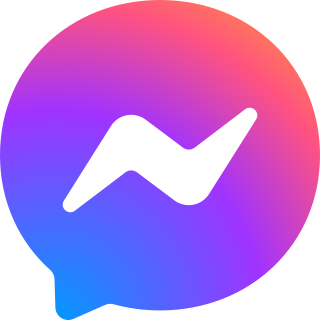Verge, Le Verge, Vergé or The Verge may refer to:
Assisted dying, assisted death, aid in dying or help to die may refer to:

YouTube is an American online video sharing platform owned by Google. Accessible worldwide, YouTube was launched on February 14, 2005, by Steve Chen, Chad Hurley, and Jawed Karim, three former employees of PayPal. Headquartered in San Bruno, California, United States, it is the second most visited website in the world, after Google Search. As of January 2024, YouTube has more than 2.7 billion monthly users, who collectively watch more than one billion hours of videos every day. As of May 2019, videos were being uploaded to the platform at a rate of more than 500 hours of content per minute, and as of 2021, there were approximately 14 billion videos in total.
Heterophoria is an eye condition in which the directions that the eyes are pointing at rest position, when not performing binocular fusion, are not the same as each other, or, "not straight". This condition can be esophoria, where the eyes tend to cross inward in the absence of fusion; exophoria, in which they diverge; or hyperphoria, in which one eye points up or down relative to the other. Phorias are known as 'latent squint' because the tendency of the eyes to deviate is kept latent by fusion. A person with two normal eyes has single vision (usually) because of the combined use of the sensory and motor systems. The motor system acts to point both eyes at the target of interest; any offset is detected visually. Heterophoria only occurs during dissociation of the left eye and right eye, when fusion of the eyes is absent. If you cover one eye you remove the sensory information about the eye's position in the orbit. Without this, there is no stimulus to binocular fusion, and the eye will move to a position of "rest". The difference between this position, and where it would be were the eye uncovered, is the heterophoria. The opposite of heterophoria, where the eyes are straight when relaxed and not fusing, is called orthophoria.
A music streaming service is a type of online streaming media service that focuses primarily on music, and sometimes other forms of digital audio content such as podcasts. These services are usually subscription-based services allowing users to stream digital copyright restricted songs on-demand from a centralized library provided by the service over the internet. Some services may offer free tiers with limitations, such as advertising and limits on use. They typically incorporate a recommender system to help users discover other songs they may enjoy based on their listening history and other factors, as well as the ability to create and share public playlists with other users. It may also include customized radio or social media platforms.
On the Verge may refer to:

Instagram is a photo and video sharing social networking service owned by Meta Platforms. It allows users to upload media that can be edited with filters, be organized by hashtags, and be associated with a location via geographical tagging. Posts can be shared publicly or with preapproved followers. Users can browse other users' content by tags and locations, view trending content, like photos, and follow other users to add their content to a personal feed. A Meta-operated image-centric social media platform, it is available on iOS, Android, Windows 10, and the web. Users can take photos and edit them using built-in filters and other tools, then share them on other social media platforms like Facebook. It supports 32 languages including English, Spanish, French, Korean, and Japanese.
The Verge is an American technology news website headquartered in Lower Manhattan, New York City and operated by Vox Media. The website publishes news, feature stories, guidebooks, product reviews, consumer electronics news, and podcasts.

Messenger, also known as Facebook Messenger, is an American proprietary instant messaging service developed by Meta Platforms. Originally developed as Facebook Chat in 2008, the client application of Messenger is currently available on iOS and Android mobile platforms, Windows and macOS desktop platforms, through the Messenger.com web application, and on the standalone Facebook Portal hardware.
Snapchat is an American multimedia instant messaging app and service developed by Snap Inc., originally Snapchat Inc. One of the principal features of Snapchat is that pictures and messages are usually only available for a short time before they become inaccessible to their recipients. The app has evolved from originally focusing on person-to-person photo sharing to presently featuring users' "Stories" of 24 hours of chronological content, along with "Discover", letting brands show ad-supported short-form content. It also allows users to store photos in a password-protected area called "My Eyes Only". It has also reportedly incorporated limited use of end-to-end encryption, with plans to broaden its use in the future.
The Apple ecosystem is a term used to describe Apple Inc.'s digital ecosystem of products and services, including the iPhone, iPad, Apple Watch, HomePod, and the applications that run on them. It is often praised for its seamless integration and optimization between various networks of devices, software and services, and is largely emphasized by Apple's focus on privacy, but criticized for its closed system and lack of customer control.
YouTube Premium is a subscription service offered by the American video platform YouTube. The service provides ad-free access to content across the service, as well as access to premium YouTube Originals programming produced in collaboration with the site's creators, downloading videos and background playback of videos on mobile devices, and access to the music streaming service, YouTube Music. It has over 100 million subscribers.

Steam Link is a hardware and software product developed by Valve Corporation for streaming Steam content from a personal computer or Steam Machine wirelessly to a mobile device or other monitor. Steam Link was originally released as a hardware device alongside the debut of Steam Machines in November 2015. Valve discontinued the Steam Link hardware device in November 2018, in favor of supporting its software-based Steam Link application for mobile devices and smart televisions, as well as providing Steam Link as a software package for the Raspberry Pi microcomputer.

The Google Assistant is a virtual assistant software application developed by Google that is primarily available on mobile and home automation devices. Based on artificial intelligence, The Google Assistant can engage in two-way conversations, unlike the company's previous virtual assistant, Google Now.

Daydream is a discontinued virtual reality (VR) platform which was developed by Google, primarily for use with a headset into which a smartphone is inserted. It is available for select phones running the Android mobile operating system that meet the platform's software and hardware requirements. Daydream was announced at the Google I/O developer conference in May 2016, and the first headset, the Daydream View, was released on November 10, 2016. To use the platform, users place their phone into the back of a headset, run Daydream-compatible mobile apps, and view content through the viewer's lenses.

YouTube Music is a music streaming service developed by the American video platform YouTube, a subsidiary of Google. The service is designed with a user interface that allows users to explore songs and music videos on YouTube based on genres, playlists, and recommendations. In April 2023, the service expanded its offerings to include support for podcasts.

Google Family Link is a family parental controls service by Google that allows parents to adjust parameters for their children's devices. The application allows parents to restrict content, approve or disapprove apps, set screen times, and more. Google Family Link requires Google accounts in order to access the app remotely.
Project Starline is an experimental video communication method currently in development by Google that allows the user to see a 3D model of the person they are communicating with. Google announced the product at its 2021 I/O developer conference, saying that it will allow users to "talk naturally, gesture and make eye contact" by utilizing machine learning, spatial audio, computer vision and real-time compression to create the 3D effect without the user wearing typical virtual reality goggles. The goal is to make the user feel as if they are in the same room with the other user.







